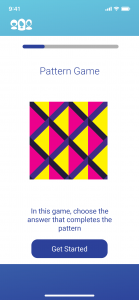
If we want to measure temperature, we use a thermometer.
But how can we measure variables like knowledge and attitudes?
We use a psychometric assessment.
The term ‘Psychometrics’ sounds intimidating and complicated, but essentially it refers to the ability to measure psychological traits. Psychometric assessments can objectively measure abilities, skills, knowledge, attitudes or personality traits.
Once these traits are measurable, they can be analyzed and investigated to build models.
Psychometric tests have been used for many years for different purposes. A common example that most people would be familiar with is an IQ test. This is a form of a psychometric test that measures intelligence.
Psychometric assessments are regularly used today in different industries, some common applications include:
The applications are diverse. The ability to measure character in a tangible way opens possibilities for people to use their character traits to support their goals.
Everybody has a personality, and this can be used to help understand their risk profile. By looking at behaviour and personality – it’s possible to build a credit score for anyone. Through a psychometric assessment we can create first-party character data which can then be analysed to provide insight around the consumer’s personality, behaviour, community, skills, and experience. Information which is highly predictive of creditworthiness.
Character traits have shown a relationship to behavioural outcomes. For example, individuals who score high levels of conscientiousness has been shown to have better education outcomes and job performance.
The same is true for creditworthiness. Certain character traits have been shown to be predictive of someone’s willingness to repay a loan.
Character data can be turned into valuable insights allowing financial institutions and lenders to not only ‘see’ more people but to understand their customers better, providing the foundations for better financial outcomes for everyone involved.
In Ethiopia the World Bank used psychometric assessments to assess borrowers for a women-entrepreneur focused line of credit in Africa. The data revealed a clear trend between psychometric test scores and loan performance. Those borrowers who scored higher on the test were seven times more likely to repay their loans than lower scoring customers.
At Begini, we have a team of experts with backgrounds in financial technology, financial inclusion, behavioural economics and data science.
Our team has developed psychometric assessments which both lenders and borrowers trust to help boost their financial outcomes.
We have identified several critical elements to a successful psychometric assessment for evaluating credit worthiness:



We have identified 12 core character traits that have a demonstrated link to loan repayment. Our tests are created with these traits in mind. Some of the traits we look for include honesty conscientiousness, ambition, risk aversion and optimism. In our assessment we have multiple ways to gain insight into how strongly the applicant portrays those traits.
An assessment should be easy to understand and complete. An engaged user is more likely to complete the full assessment, have a positive impression of the experience and provide more data points through their interactions.
Most applicants can complete our assessment in 8 – 10 minutes. The user journey consists of a series of exercises, from which we collect thousands of points of both data (their actual responses) and metadata (information about how they completed the assessment – ie how long it took to complete each module).
All our exercises are designed to gamify the assessment process. Gamification is important to help maintain interest throughout the assessment, leading to higher completion rates. The gamified process helps to generate more data points. The more data we are able to collect, the better the model.
A psychometric assessment is the only truly universal credit assessment. Therefore, assessments should be designed with accessibility in mind. Widespread availability of devices, particularly the mobile or cell phone, means new possibilities in the way psychometric assessments can be accessed.
Begini’s assessment can be taken on any device, on or offline. The exercises should be applicable to people of all backgrounds. We choose to create exercises that are pictographic and use the least number of words possible, to include low-literacy populations.
Exercises should be designed to be as objective as possible. Some ways to achieve this are asking questions with short responses or standardised responses (one-word answers or check boxes), this removes the potential of the subjective element on the part of both those taking the assessment and the way those responses are analysed.
Once a psychometric assessment is taken, machine learning algorithms analyse thousands of data points for each application. Our solution will then present the credit score in real time. As well as an overall score, we can show the individual character traits, enabling lenders to not just ‘se’ more customers but to better understand their applicants, building loyalty and long-term relationships based on mutual trust.
Once the results are in, they can be incorporated in the lenders existing decisioning system through easy to integrate APIs.
Character-based insights can be used to enhance existing credit assessment processes with alternative data that is secure, privacy consented, real time, resilient and above-all, predictive.